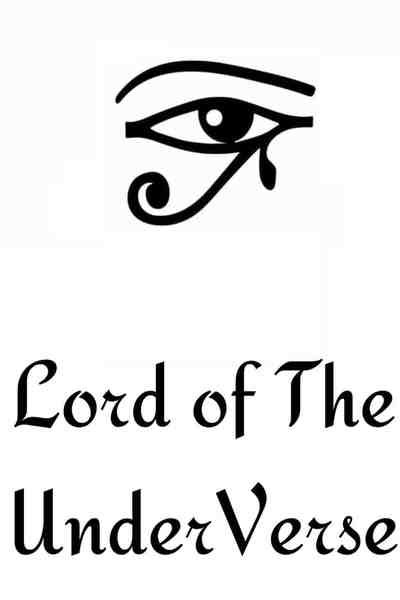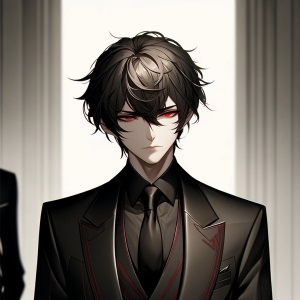"Glad to see you here, Nero-san," Hiroshi greeted him. "These paintings hold more secrets than most people realize."
Nero smiled, keeping his tone casual. "I had a feeling. Care to enlighten me?"
In a secluded corner of the gallery, Hiroshi leaned in closer. "This exhibition is a cover. Each artwork represents a type of weapon. We're merging arms deals with the art market. It's a discreet and sophisticated way to operate."
Nero hid his surprise, his curiosity piqued. "Interesting. How does it work?"
Hiroshi pointed to a canvas covered in bold red strokes. "Each painting represents a different deal. The symbols in the artwork are coded messages for different weapons. For example, these red strokes symbolize a particular caliber of firearms."
"And those who buy the paintings?" Nero asked.
"Their purchase is essentially an agreement to the terms of the arms deal. We've made it look just like a legitimate art sale," Hiroshi explained.
As they strolled through the gallery, they stopped before an abstract painting. Its chaotic brush strokes and bold colors caught Nero's eye. Hiroshi leaned closer, his voice dropping.
"Look closely at this piece, Nero-san," Hiroshi said, pointing. "At first, it seems like pure chaos, but there's more beneath the surface."
Nero squinted, trying to decipher the hidden meaning. "It's... chaotic," he said.
Hiroshi nodded. "Exactly. It represents the chaos of warfare—the unpredictability, the raw energy. But see these patterns here, and how the colors meet there?"
Nero followed Hiroshi's finger, noticing subtle symbols within the chaos. "Are those... codes?"
Hiroshi smiled. "Yes, each symbol represents a specific type of weapon. The red swirls, for example, indicate a particular caliber of firearm."
Nero stepped back, studying the painting. "Amazing. It's a message hidden in plain sight."
"Exactly. To outsiders, it's just art, but to our buyers, it's a catalog," Hiroshi said, his voice full of pride.
Nero turned, intrigued. "How do buyers show interest?"
"They discuss the 'depth' or 'texture' of a piece," Hiroshi explained. "We know what they mean. It's all very refined—an art discussion that’s really about arms deals."
Nero nodded, admiring the cleverness of the system. "This isn't just dealing in arms; it's an art form in itself."
They continued on, stopping before several traditional Japanese calligraphy scrolls. The flowing script was elegant, but Hiroshi indicated there was more to them.
"This calligraphy," Hiroshi began, "looks like typical poetry, but it's coded. We use it to convey information about our operations."
Nero studied the delicate strokes. "A code? How so?"
"Each character and stroke represents something specific—a type of weapon, quantity, or delivery date. To others, it’s just poetry. To us, it's a detailed record," Hiroshi said.
Nero nodded slowly. "So these verses could actually be detailing shipments of firearms or explosives?"
"Precisely," Hiroshi confirmed. "It's a tradition we've kept for generations. Only a few can read it."
Nero stepped back, his gaze lingering on the calligraphy. "Ingenious. You've turned something beautiful into a tool."
Hiroshi smiled slightly. "In our world, creativity is as important as strength."
They moved towards the modern art section, where several digital screens displayed shifting patterns. Nero observed them, puzzled.
"Interesting choice for an art exhibit," Nero remarked.
Hiroshi nodded. "These screens aren't just art. They show real-time updates about our arms movement, hidden in random patterns."
Nero looked closer. "Real-time updates?"
"Yes. Each pattern represents specific data—locations, times, quantities. Only our buyers understand the codes," Hiroshi said.
Nero watched the shifting colors. "No one suspects?"
"That's the beauty of it. To the average person, it's just another strange installation," Hiroshi replied with a smirk.
Nero marveled at the blend of art, technology, and secrecy. This operation wasn’t just criminal—it was brilliant.
They walked to a section with mythological paintings, each showing a different mythological figure with an unexpected twist.
"These are intriguing," Nero commented, noting a figure holding a weapon that seemed out of place.
"These weapons represent our arms deals," Hiroshi explained. "This spear, for example, represents a specific missile system."
"So buyers know which paintings represent which arms?" Nero asked.
"Exactly. It's our way of indicating what’s available. The mythological context is just a cover," Hiroshi said.
Nero nodded, impressed. "It’s an elegant system."
They moved to a section with lifelike statues of ancient warriors. Hiroshi gestured towards a Roman legionary statue.
"These aren't just historical figures. Each weapon represents a modern equivalent," Hiroshi said. "This sword stands for a combat knife we offer."
Nero moved to a samurai statue. "And this?"
"It represents precision cutting tools. The details of the statue indicate the type," Hiroshi confirmed.
Nero appreciated the combination of history and modern weaponry. "You’ve created a whole coded system here."
"Yes," Hiroshi said. "To outsiders, it’s just history. But to us, it’s a different kind of arsenal."
They approached a painting with a hidden compartment. Hiroshi revealed a bullet casing within.
"These pieces hold samples—proofs of our merchandise," Hiroshi explained.
Nero nodded, realizing how deep the deception went. "Ingenious."
They walked to the ceramic section. Hiroshi used an ultraviolet light to reveal hidden codes.
"These codes tell us everything—type of weapon, quantity, shipment details," Hiroshi said.
Nero was amazed. "And under normal light, no one can see it."
"Exactly. The beauty remains, but it serves a purpose," Hiroshi said.
They finally came to a dimly lit section with sculptures casting shadows. Hiroshi adjusted the light, revealing a sniper rifle's silhouette.
"These shadow artworks are symbolic. They reflect our hidden operations," Hiroshi said.
Nero watched as another sculpture’s shadow showed a covert exchange. "It’s a vivid metaphor for what you do."
"Only those who know can understand," Hiroshi said. "Art becomes our language, our way to hide in plain sight."
Nero nodded, seeing the gallery in a new light. Each piece was a cover, a disguise for the real business at hand. It was an ingenious blend of beauty and danger, and Hiroshi's pride was well-founded. The Yakuza had turned their criminal dealings into an art form, hidden in the open, available only to those who knew how to look beneath the surface.











Comments (5)
See all